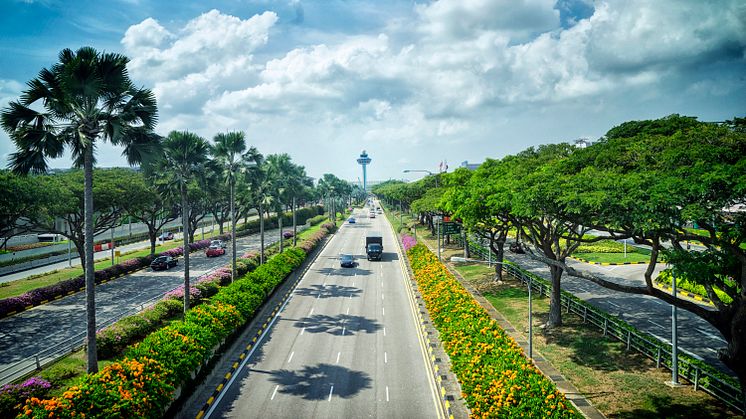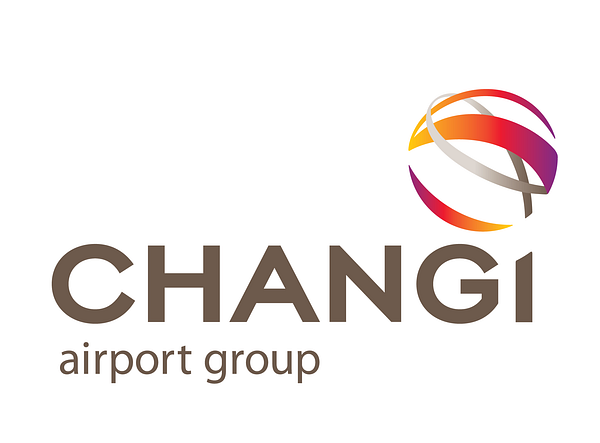
Press release -
Changi Airport prepares for closure of T1 open-air car park; forthcoming changes to parking and pick-up arrangements
SINGAPORE, 26 September 2014 – As part of Changi Airport Group’s (CAG) blueprint to enhance Changi Airport’s infrastructure, the redevelopment of the open-air car park site fronting Terminal 1 (T1) will begin in the last quarter of 2014. The car park, which presently serves T1 users, will then be closed to enable the commencement of construction works (see footnote 1) on the 3.5 ha site. As a result, there will be some changes to the existing parking and pick-up arrangements for T1 users. In the lead-up to this, CAG is preparing a comprehensive series of measures to minimise the inconvenience to motorists and airport users.
Nearest car park at T2 designated for T1 users
With the closure of the open-air car park, the nearest parking facility to T1 – Car Park 2B at Terminal 2 (T2) – will be designated for use by T1 visitors. Located at the north end of T2 (see figure 1 in PDF), this car park will be renamed T1 Car Park when the relocation takes effect.
Road signage and lane markings along the roadways leading to and within Changi Airport, will guide drivers who wish to access the T1 Car Park to this new location. Drivers should look out for these road signs when approaching the airport, and follow the directions accordingly.
Meanwhile, T2 users will continue to be served by the second car park at T2, located at the opposite side of the terminal. This car park, currently known as Car Park 2A, will be renamed T2 Car Park when the changes take effect (see figure 1 in PDF). Similarly, there will be clear signage to direct drivers visiting T2 who wish to use this car park.
Based on Changi Airport’s car park utilisation rates, the number of parking spaces at the two car parks at T2 is expected to be adequate to cater to both T1 and T2 users. To further expand parking capacity during busy periods, a free valet parking service will also be introduced at the new T1 Car Park during peak hours on weekends and public holidays.
New Arrival pick-up point at T1
As part of the redevelopment project, the T1 building will be expanded towards the open-air car park site to provide for a larger Arrival meeters-and-greeters’ hall. To enable construction works, T1’s existing Arrival pick-up point for private cars will be moved to a new location, at the same time as the closure of the open-air car park. The new Arrival pick-up bay is located just outside the T1 Arrival Hall, on the same level (see figure 2 in PDF).
There will be no change to the Departure drop-off point for private cars and taxis, as well as the passenger boarding point for taxis at T1.
Moving between T1 and T2
With the relocation of the T1 Car Park to T2, measures will be put in place to facilitate the movement of airport users between the two terminals. In addition to the existing Skytrain service, CAG will introduce a free shuttle bus service to connect T1 and T2.
The shuttle service will operate daily at regular intervals, with convenient boarding and alighting points at T1 and T2. The bus to be used for this service will feature a single-step, low-entry design with wheelchair accessibility, making the boarding and alighting process easy and commuter-friendly.
Full-scale dry-run from 17 to 21 October 2014
To ensure the effective implementation of the new ground transport arrangements for a smooth airport experience, thorough planning is underway. A full-scale dry-run will be conducted from 2.00am on 17 October (Friday) to 2.00am on 21 October 2014 (Tuesday). This will involve the temporary relocation of the T1 Car Park to T2 and the relocation of the T1 Arrival pick-up point during the 96-hour period. Road signage, lane markings and on-ground support, including traffic marshals to guide motorists to the relocated facilities, will be in place during this dry-run.
The dry-run will enable CAG to assess the operational effectiveness of the proposed measures, and make adjustments for enhancements where necessary, before the final implementation. Following which, these arrangements will remain in place until 2018, when expanded parking and ground transport facilities, which are being developed as part of the redevelopment project, will be ready.
Steps taken to ensure sufficient parking spaces
With the forthcoming closure of the T1 open-air car park, and as Changi Airport handles more passenger traffic, CAG is taking steps to better ensure sufficient parking capacity to meet airport users’ needs. This is done through a two-pronged approach of creating new parking spaces where possible, within the constraints of limited land space, and putting in place measures to manage demand for extended parking.
New parking spaces have been created at various locations across Changi Airport. In particular, a new South Car Park located near the entrance to the JetQuay terminal has been developed (see figure 3 in PDF) and will open at 2.00am on 14 October 2014 (Tuesday). The open-air car park – a five-minute walk to T2 – will have a capacity of about 230 parking spaces.
The South Car Park will offer a lower parking rate of 3.5 cents per minute, compared to 4 cents per minute at the main terminal car parks, due to its slightly further location. In addition, a cap of S$35 per 24 hours of parking will apply.
As Changi Airport handles increasing passenger traffic, there is a need to manage demand for extended parking at the airport. This is to ensure sufficient parking spaces to serve the growing number of airport users – the majority of whom are short-term parkers receiving and sending off passengers throughout the day.
While long-term parkers – who park beyond 24 hours, some for days in a row – constitute a small minority of car park users at Changi Airport, they account for a more significant proportion of car park utilisation. Although only 2% of car park users park beyond 24 hours at the airport, they account for about 20% of Changi’s overall parking utilisation on an average day.
Hence, with the opening of the South Car Park, the existing S$20 cap on the daily parking charge at the main terminal car parks will no longer apply (see footnote 2).
Based on the per-minute parking rate of 4 cents, which remains unchanged, the fee for 24 hours of parking at the main terminal car parks will be S$57.60. Visitors who wish to park for an extended period at the airport can consider the South Car Park as an alternative.
Redevelopment of T1 open-air car park site
The redevelopment of the T1 open-air car park site will be accompanied by the reconfiguration of roadways that presently limit the footprint of the T1 building, constraining the terminal’s passenger handling capacity. With the expansion of the T1 building, more space will be created for aviation facilities, including a larger Arrival Hall for meeters and greeters, and more spacious baggage claim areas.
As part of the works, the parking and ground transport facilities at T1 will also be enhanced to handle a higher volume of traffic. The terminal’s Departure drop-off kerbside and pick-up area for private cars will be expanded, as well as more taxi bays added and a much larger car park built. A new basement car park, below Project Jewel (see footnote 3), will add about 2,500 parking spaces at Changi Airport when completed – three times the capacity of the current open-air car park. Together, these improvements will increase T1’s passenger handling capacity to 24 million passenger movements per annum, 35% more than the 17.7 million handled at the terminal in 2013.
In addition to the expansion works for T1, Project Jewel – a multi-use complex that integrates facilities for airport operations, leisure attractions and retail offerings – will be developed on the site. With an iconic facade and exciting offerings within, Project Jewel is envisaged to be a world-class lifestyle destination that will help Changi Airport grow passenger mindshare and strengthen its global appeal as an air hub. The complex, when completed, will be integrated seamlessly with T1 and serve as a node to enhance connectivity between the terminals and the MRT station.
Footnotes:
1) Includes expansion of
Terminal 1 and the development of Project Jewel
2) From 2.00am
on 14 October 2014
3) Project
Jewel is the current name for the multi-use complex being jointly developed by
CAG and CapitaMalls Asia at the T1 open-air car park site.
Topics
Categories
About Changi Airport Group
Changi Airport Group (Singapore) Pte Ltd (CAG) (www.changiairportgroup.com) was formed on 16 June 2009 and the corporatisation of Singapore Changi Airport (IATA: SIN, ICAO: WSSS) followed on 1 July 2009. As the company managing Changi Airport, CAG undertakes key functions focusing on airport operations and management, air hub development, commercial activities and airport emergency services. CAG also manages Seletar Airport (IATA: XSP, ICAO: WSSL) and through its subsidiary Changi Airports International, invests in and manages foreign airports.
Changi Airport is the world's sixth busiest airport for international traffic. It served a record 53.7 million passengers from around the globe in 2013. More than 350 retail stores and 120 F&B outlets are situated across three terminals to cater to passengers and visitors. With over 100 airlines providing connectivity to 300 cities worldwide, Changi Airport handles about 6,600 flights every week, or about one every 90 seconds.
